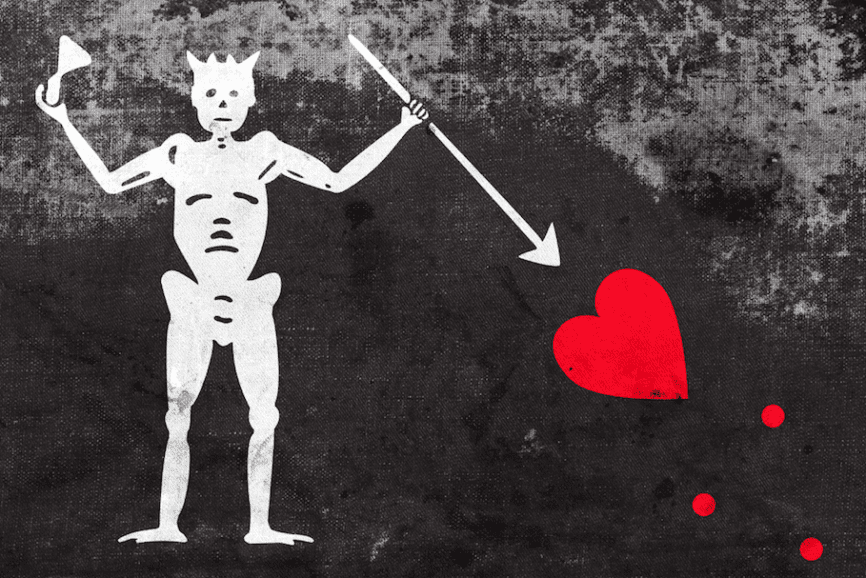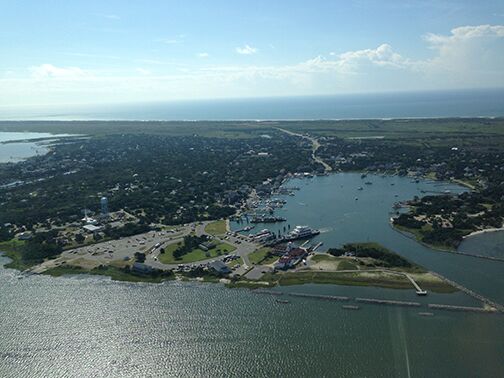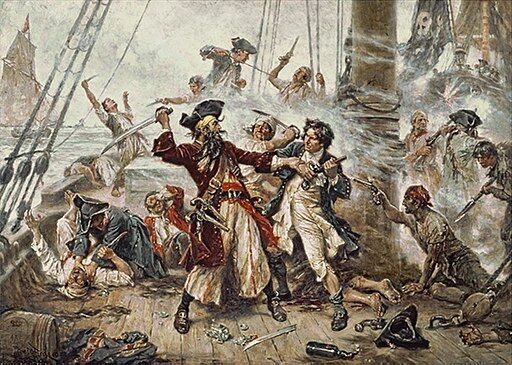In the Pirate’s Wake – The Other Tales of Blackbeard
Behind every great pirate, there are stories to be told, and that is certainly the case with Blackbeard.
Famous, or infamous, as he may have been, he did not reach the pinnacle of piratical legend without the help of others in his crew.

William Howard – Quartermaster
Although Queen Anne’s Revenge is well known as Blackbeard’s ship, a more accurate description would be “flagship of a pirate fleet”. At the height of his career, Blackbeard commanded a fleet of five ships. With that many ships and that many men, keeping them supplied with food, arms and everything else needed becomes a problem—unless there is an experienced quartermaster.
Enter William Howard, Pirate Quartermaster Extraordinaire.
When Blackbeard either scuttled or misjudged a reef and sank Queen Anne’s Revenge in May of 1718, Howard was the quartermaster of the fleet.
As a quartermaster, he had been working his way up the ranks of pirates, beginning his career with Benjamin Hornigold, Blackbeard’s mentor when he first became a pirate.
With the sinking of Queen Anne’s Revenge, Howard took advantage of a pardon offered by North Carolina Governor Eden and swore to never go a-pirating again.
Instead, he settled on Ocracoke, eventually buying the island in 1759. He seems to have lived a very long life—there is a good possibility that he lived to be 108—and was, evidently quite fruitful. Ocracoke is filled with descendants of him to this day and his name is prominent. Howard’s Pub and Howard Street are two examples.

Tobias Knight
Every good thief needs a fence, and the evidence seems to suggest that Blackbeard found a good one in Tobias Knight, North Carolina’s chief justice and His Majesty’s customs collector.
Knight denied any direct relationship with the pirate in a North Carolina trial in which he was found innocent, but his proclaimed innocence does not explain how goods from a ship Blackbeard had seized was found in a barn on Knight’s property. Nor does it explain the midnight visit from Blackbeard the night before the goods showed up in the barn. Nor does it explain the letter from Knight to Blackbeard advising him that the British Navy was sailing out to engage him off Ocracoke…
Virginia authorities seem to have been aware of Knight’s potentially nefarious activities and demanded his extradition to the Colony. North Carolina refused the request, but agreed to try him in his own colony, where, as noted, he was found innocent of all charges.
The Fate of Lt. Maynard
Under orders to bring back the head of Blackbeard—connected to the body or otherwise—Lieutenant Robert Maynard of His Majesty’s Navy conducted a brilliant naval operation.
Commanding two unarmed sloops, he lured Blackbeard into believing the smaller ships had been so damaged and decimated by cannon fire that they would be easy marks. When the pirate boarded Maynard’s Ranger, his crew swarmed onto the deck, overwhelming Blackbeard and his men.
With the final sword thrust being made by Maynard and an unknown British sailor, the pirate fell at Maynard’s feet. The Lieutenant cut Blackbeard’s head off, mounted it on the ship’s bowsprit and returned to Norfolk…to what he probably thought would be a hero’s welcome.
He may have been welcomed as a hero, but neither he nor his crew were treated as heroes. It was the prize money that seems to have been the bone of contention.
After the battle, Maynard and the surviving crew members seized goods that Blackbeard had just stored on the beach, what was on his ship at the time of his death, and sugar, cotton, and cocoa found in Tobias Knight’s barn. The total value, according to records of the time, was 2,238 pounds—around $620,000 in modern currency, funds Virginia Governor Spotswood planned to use to pay for the expedition.
The promised 400-pound prize money was to be split between the crews of two British warships docked at Hampton Roads. Maynard felt a 50/50 split with crew members who never left Hampton Roads and did not participate in the battle was unfair, and evidently was quite forceful in saying so.
His claim was somewhat undercut when it was found that he and the surviving crew members of the battle had helped themselves to about 90 pounds sterling of Blackbeard’s ill-gotten goods.
For all his skill and bravery, Lt. Maynard would remain a Lieutenant for some time, waiting 20 years to be promoted to Commander and finally Captain in 1740. He died in 1751.

Was the attack on Blackbeard legal?
Probably not.
The British Colonies were, for the most part, considered independent political entities and by law, no military force from one colony could enter the domain of another without permission.
Governor Eden most emphatically would not have granted Governor Spotswood permission to send a military force into the province. Considerable evidence exists that Eden, if not directly colluding with Blackbeard, was at the least profiting from Tobias Knight’s association. More importantly, perhaps, Eden and Spotswood thoroughly detested one another.
Spotswood, who seemed to skirt legalities in quite a number of areas—he managed to grant himself 85,000 acres during his time in office—would not be denied, however. Looking back on the expedition at a later date he wrote, “I thought it necessary to put a stop to the further progress of the robberies.”
